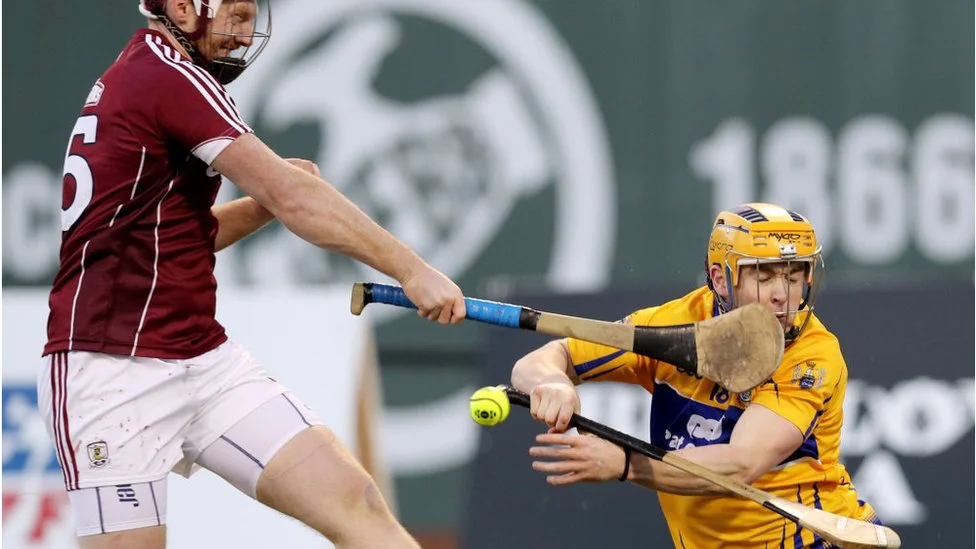
Hurling Sport,In the emerald hills and verdant valleys of Ireland, amidst the misty mornings and the rolling landscapes, lies a sport as old as the land itself – hurling. This ancient Gaelic game, often referred to as the fastest field sport in the world, is not merely a pastime but a passion that courses through the veins of its players and fans alike. From its mythical origins to its modern-day prominence, hurling remains a symbol of Irish identity, resilience, and sheer athleticism.
A Glimpse into History- Hurling Sport
Tracing its roots back over 3,000 years, hurling is steeped in the annals of Irish mythology and folklore. Legend has it that the game was played by the ancient Celts as a form of preparation for battle, honing their agility, strength, and strategic prowess. The hero Cú Chulainn, renowned for his feats of bravery and skill, was said to be a master of the hurling field, his prowess unmatched by any opponent.
Historically, hurling Sport was not merely a sport but a communal event, bringing together communities in celebration and competition. Matches were held on feast days and special occasions, drawing crowds from far and wide to witness the spectacle of skill and athleticism on display. Over the centuries, hurling evolved, adapting to changing times while preserving its core traditions and values.
The Essence of Hurling
At its heart, hurling Hurling Sport is a game of skill, speed, and strategy. Played with a wooden stick called a hurley and a small, leather ball known as a sliotar, the objective is simple – to outscore the opposing team by striking the sliotar between the opponent’s goalposts. However, simplicity belies the complexity of the game, as players must navigate the field with lightning reflexes, precise hand-eye coordination, and tactical acumen.
One of the most striking aspects of hurling Sport is its sheer pace. With players wielding their hurleys like extensions of their bodies, the sliotar can travel at astonishing speeds, reaching velocities of over 150 kilometers per hour. This frenetic pace, coupled with the physicality of the game, demands unwavering focus, agility, and courage from those who dare to step onto the field.
Preserving Tradition in the Modern Age
In an era of rapid globalization and technological advancement, hurling sport stands as a testament to the enduring power of tradition. Despite the allure of modern sports and entertainment, the ancient game continues to thrive, woven into the fabric of Irish culture and identity. Each year, thousands gather at hallowed grounds like Croke Park in Dublin to witness the All-Ireland Senior Hurling Championship, the pinnacle of the sport, where rival counties vie for supremacy and glory.
But hurling’s appeal extends far beyond the shores of Ireland. In recent years, efforts to promote the sport internationally have borne fruit, with clubs and leagues springing up in countries around the world. From the United States to Australia, enthusiasts of all backgrounds have embraced hurling, drawn to its combination of athleticism, camaraderie, and rich heritage.
Looking to the Future
As hurling enters a new era, it faces both challenges and opportunities. The demands of modern life, coupled with competing interests, threaten to erode the traditions that have sustained the sport for millennia. Yet, amid these challenges, there is cause for optimism. With increased exposure and investment, hurling has the potential to reach new heights, captivating audiences and inspiring future generations to embrace its ethos of skill, sportsmanship, and community.
In the end, hurling sport is more than just a game – it is a symbol of the resilience and spirit of the Irish people, a testament to their enduring love affair with sport and tradition. As long as there are fields to play on and hearts to compete, hurling will continue to flourish, a timeless expression of human endeavor and the pursuit of excellence.